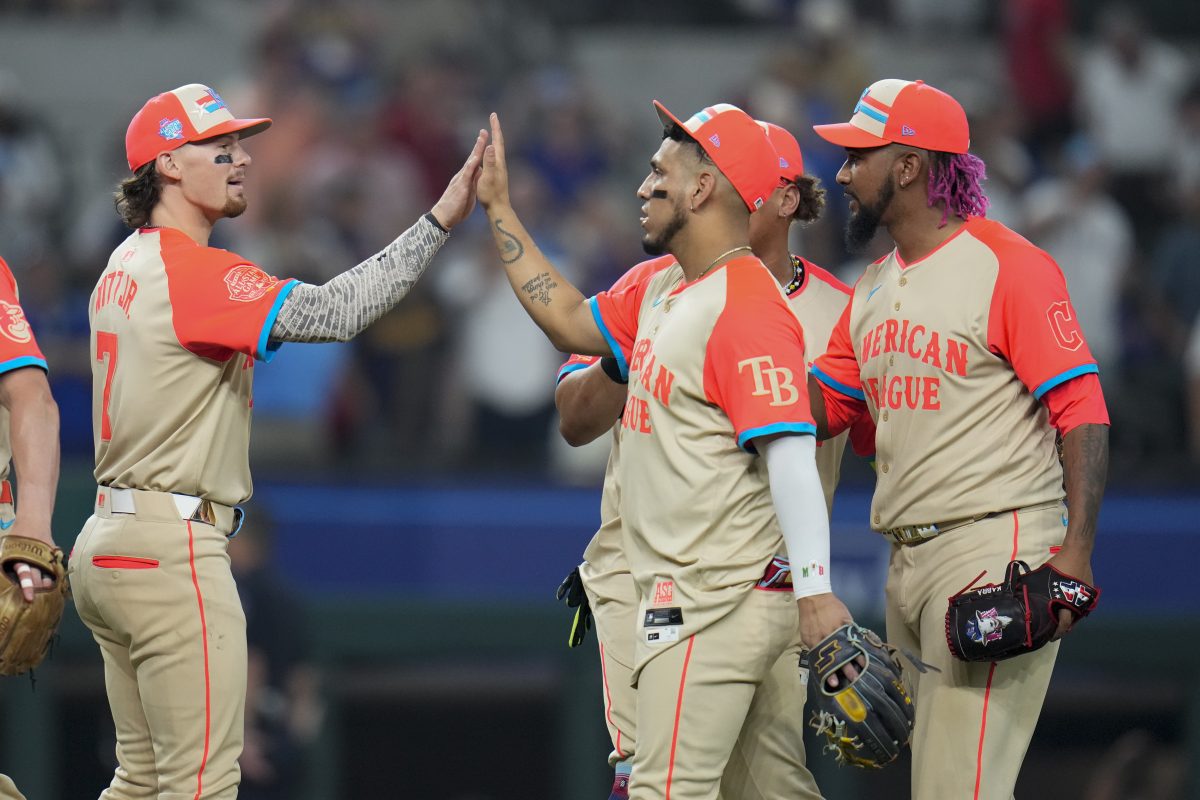



As Major League Baseball prepares for another All-Star Game this summer, a growing number of voices inside and outside the game are calling for a radical change: scrap the traditional American League vs. National League format and stage a “United States vs. The World” showcase instead.
The idea, inspired by recent moves in the NHL and NBA to reimagine their midseason exhibitions, is gaining momentum. Could MLB be next to follow suit?
Proponents argue that a USA vs. World format would better reflect the current, global face of baseball. Nearly 30% of MLB players are now born outside the United States, and international players — from Shohei Ohtani and Ronald Acuña Jr. to Vladimir Guerrero Jr. and Fernando Tatis Jr. — are among the league’s biggest stars. A special-format game would put the game’s global diversity at the forefront.
Not only could it create new marketing opportunities for MLB, but it would also tap into a rising sense of national pride that fuels successful events like the World Baseball Classic. A U.S. vs. World format could also attract new fans globally — a primary objective as MLB continues to expand its footprint internationally with games in London, Mexico City, and Asia.
Additionally, fans have largely lost interest in the old AL vs. NL rivalry. Interleague play, now a staple of the regular season, has diluted the novelty of league vs. league matchups. A USA vs. The World event would offer something fresher, more emotionally charged, and far more narrative-driven.
Traditionalists warn that moving away from the American League vs. National League setup would further erode baseball’s historical identity, already seen by some as under threat amid pitch clocks, ghost runners, and expanded playoffs.
The All-Star Game, after all, was initially built on league pride, not national pride. Legends like Willie Mays, Ted Williams, and Derek Jeter forged their All-Star legacies competing for their leagues. To remove that structure would sever one of the last remaining ties to a century of baseball tradition.
There are also practical concerns: how would rosters be fairly balanced if certain positions are disproportionately filled by one group? Would there be enough elite pitchers, catchers, or shortstops to create competitive teams without forcing players into unnatural positions?
Some fear a USA vs. World game could unintentionally create uncomfortable political optics. In a world already fraught with tension, framing competition as “America vs. the rest” — even in the spirit of sport — could carry unintended consequences.
And from a player’s perspective, especially for veterans nursing midseason injuries, would there be enough incentive to take such a highly charged international showcase seriously without significant health risk?
MLB has not formally announced any plans to alter the All-Star Game. League officials have acknowledged that the event must continue evolving to stay relevant to new generations of fans.
The success of the World Baseball Classic — especially the gripping USA vs. Japan final in 2023 — has shown that fans crave international competition in baseball. Whether that appetite will be enough to upend one of MLB’s oldest traditions remains to be seen.
One thing is clear: the conversation is only just beginning, and how MLB responds could shape the future of its midsummer tradition for decades to come.
AP Photo